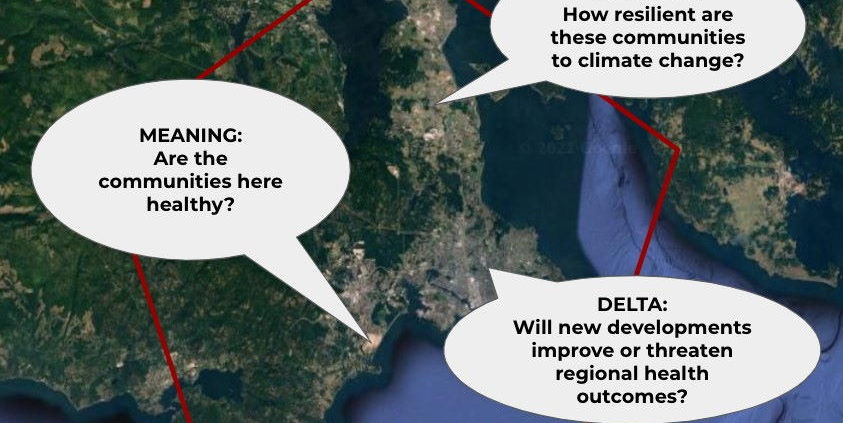Resilient Urban Systems & Habitat (RUSH) Initiative
So…Lytton burned. June’s heat wave was a reminder: You humans are indeed vulnerable to the impacts of climate change.1
70% of sudden deaths recorded in BC during the heat wave were due to extreme temperatures. More than 1 billion seashore animals were cooked to death.2 Shellfish populations were devastated.
That’s not good: these water-filtering creatures clean and maintain the water quality in the ocean every day, free of charge. We humans don’t know how to provide this service, nor could we afford to provide it on the scale at which it naturally occurs.
How are we protecting our fellow creatures and ourselves in the face of climate change? Is there a way to amp up our ability to handle heavy weather? Are there things we can do to help regulate our climate right here? What can we do to cool the city off during the summer?
The Power Of Maps
The Resilient Urban Systems & Habitat (RUSH) initiative is here to help us figure it out. RUSH is a collaboration of smart people working across different sectors who are finding ways to protect our region better, so it can withstand climate change. Because ready or not, it’s here.
Hosted by the Map Shop at the University of Victoria (UVic), RUSH is compiling and delivering data on community and ecosystem health to the local ArcGIS mapping system (Capital Regional District).
Teams engaged in community-based participatory research at UVic are starting with tree cover and pavement data. Where do we need more shading? Where should we convert parking lots to patios and parks?
Teams involved in community mapping are researching ways to connect rain and pollinator gardens across the region. These teams specialize in learning from communities and creating tools that help to find the opportunities and spot the gaps.
With the help of the Greater Victoria Placemaking Network, gardeners will be able to plot their pollinator gardens on the ArcGIS Map. This will show us where bees, butterflies, birds and other pollinators, who are key to growing delicious food across the region, need more habitat to work their magic. The Network helps the public map all kinds of things like Little Free Libraries, sidewalk art and seed banks.
Maps and data are not the whole picture though… Just because we see something, doesn’t mean we understand it. Maps can create divisions and cause us to miss important relationships, features, and dynamics. Learning about this area from Indigenous people is essential in building understanding for what is here, what was here and what is needed to restore the health of the land and its creatures. Indigenous knowing plus years of monitoring and research by local restoration groups will bring deeper meaning to the visuals that the maps offer.
The Power Of Partnerships
At the rate we’re going, we’re on track to becoming a concrete jungle. And many areas across the region suffered because of that during the heat wave.
Our Indigenous communities have been clear in pointing out that the way we’ve developed our neighbourhoods does not improve our relationship with the wider ecosystem. Settlement across the region marginalizes the First Nations and their way of life. Our built environment makes some cultural harvesting and other practices impossible. This needs to change. By restoring and connecting natural areas, we can all take steps to living in a better relationship with the land and Indigenous communities. Partners across sectors are coming together to find a shared language and vision that has urban design supporting Nature in her work of creating the conditions conducive to a good life for all.
Some of our RUSH partners include:
The Capital Regional District–Community Health Network, the University of Victoria, Island Health, Christine Lintott Architects, the Greater Victoria Placemaking Network, Peninsula Streams Society, Seachange Marine Conservation Society and NatuR&D. Together, we have identified the need for a map that helps us see the opportunities and the gaps. Our goal is to figure out what we need to know in order to make communities healthy and resilient to climate change across the region and see the difference we are making with dashboards that will tell us how to be more protected and connected.
Join Us
Starting in 2022, we are inviting everyone who is interested to join us for a mix of field trips, events and online sessions.
Connect to stay in the loop for updates and registration information in 2022.
See also…
Acker, Maleea. “What’s the RUSH? Anne-Marie Daniel’s Resilient Urban Systems and Habitat Initiative.” Focus on Victoria, 10 December 2021.
